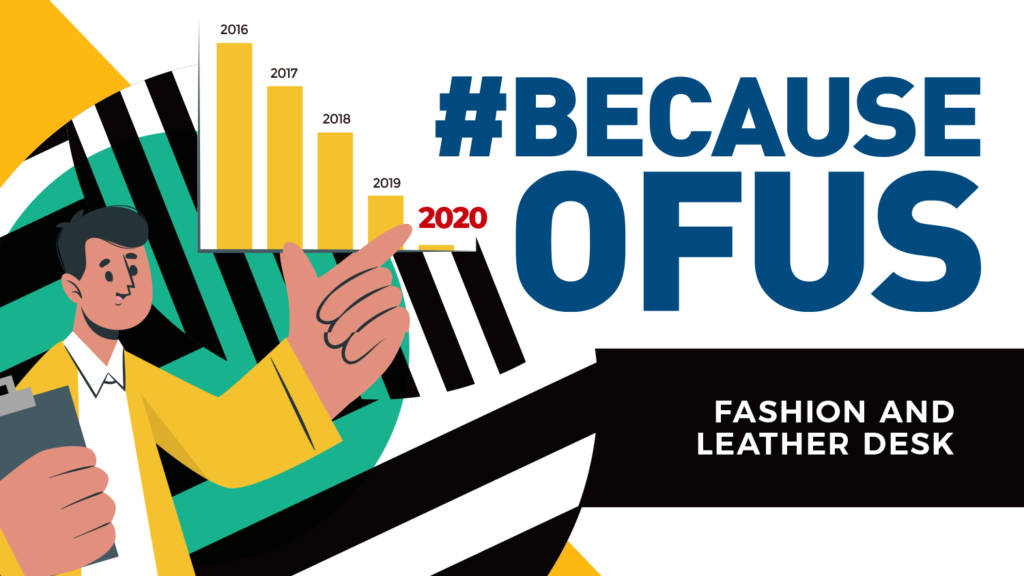
Professional claimant cases drop, more wins for companies
On 2nd December 2019, the State Administration for Market Regulation (SAMR) issued the Interim Measures for Handling Complaints and Reports Concerning Market Supervision and Administration, which state that market supervision and administration agencies should not accept complaints arising from circumstances such as “purchases not made for lifestyle and consumption needs”, a move aimed at ending profiteering through malicious complaints.
With this change in policy, professional claimants cases have dropped sharply due to the clear attitude of the state. Through the continuous efforts of the Fashion and Leather Desk of the European Chamber since its establishment in 2016, more and more companies have won lawsuits against professional claimants. By 2020, many member companies reported that their physical shops now rarely have to deal with professional claimants.
Professional claimants
In 2013, the amended Consumer Protection Law established the punitive ‘treble compensation’ system – three times the original price of the product being complained about. In the same year, the Supreme People’s Court (SPC) affirmed that compensation can be awarded to those “consciously buying counterfeits” in the food and pharmaceutical sectors. In 2015, the Food Safety Law introduced the ‘ten for one’ provision for fakes. All these legislation updates were aimed at better protecting consumer’s rights; however, professional claimants often utilised the punitive damages system as a tool for personal gain.
Fashion and Leather Desk
Branded apparel and leather products of imported luxury goods often become targets for professional claimants, due to their high value and the fact that these brands attach great importance to their image and reputation. The claimants specifically buy products with defective labels to claim high compensation through a series of tactics, such as blackmailing companies, filing complaints with the authorities, and/or suing in court.
In 2016, ten high-end European fashion brands that had been targeted by professional claimants approached the Chamber, seeking to jointly appeal to the relevant authorities for a solution to the issue. As a result, the Fashion and Leather Desk was established and worked on setting up communication channels with all relevant stakeholders in order to address companies’ concerns.
The desk has actively established contacts with the former State Administration for Industry and Commerce, the SAMR, and local market regulatory authorities in Beijing, Shanghai and Hangzhou; conveyed companies’ concerns through meetings and advocacy letters; organised various seminars/workshops; and repeatedly submitted comments to legislators on relevant draft laws. The desk has also elaborated on the issue of professional claimants and provided recommendations on how to improve the situation through its annual European Business in China Position Paper, which are submitted to the relevant legislative and regulatory authorities in China and the European Union (EU).
Changes in policy and regulations
- In early 2017, a shift in judgments on professional claimant cases could be observed in Beijing; companies began to win and professional claimants’ claims were often not upheld.
- In 2017, the SPC stated in its Response to Proposal No. 5990 of the Fifth Session of the 12th National People’s Congress that “…an increasing number of professional shoppers and agencies (groups) are not motivated by the desire to purify the market, but to use punitive compensations for their own profit or as an opportunity to extort money from businesses”.
- In 2018, Shanghai issued the Guidance on Effective Response to Professional Claims/ Professional Reporting Behaviour to Maintain Business Environment Order, listing professional claiming/reporting as a factor that affects the market environment and business order.
- In 2019, a number of malicious claimants and extortionists in the name of rights protection were severely punished by the law.
- In 2019, the Opinions on Deepening Reform and Strengthening Food Safety proposed that “malicious reporting for illegal profit should be cracked down in accordance with the law”; and the Guiding Opinions on Promoting the Standardised and Healthy Development of the Platform Economy called for a crackdown on extortion in the name of “counterfeiting”.
- In 2019, the SAMR published the Interim Measures for Handling Complaints and Reports Concerning Market Supervision and Administration, stating that market supervision and administration agencies should not accept complaints arising from circumstances such as “purchases not made for lifestyle and consumption needs”.
Xia Yafang, Chair of the Fashion and Leather Desk
“The effective deterrence of dishonest behaviour by professional claimants who misrepresent the legislative intent of the Consumer Protection Law for unjust personal gain demonstrates the importance of constructive engagement between business and government to improve the business environment. The law is the benchmark. While establishing a just order, it must also be enforced in a way that discourages the distortion of its purpose for personal gain.”
Outlook
Despite these advancements, opinions on the subject of professional claimants still differ. Therefore, the desk would still like to see a fundamental solution at the legislative level. For instance, whether professional claimants are subject to consumer status under the Consumer Protection Law is still not clear. Excluding professional claimants from the definition of consumer status and providing a precise scope for the application of punitive damages will help to further curb abuse of the law.
In addition, the desk is also actively providing suggestions on the revision of the Product Quality Law, hoping to introduce a distinction between product labelling defects and product quality and safety issues, as well as reasonable penalties for different violations.


Recent Comments